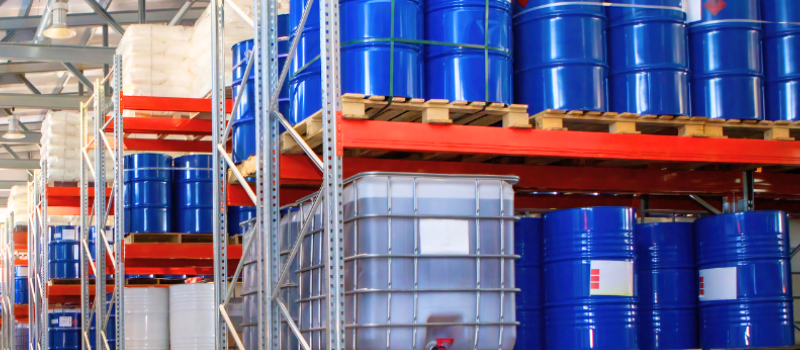Are you struggling to keep your chemical manufacturing operations efficient while driving sales? In this fast-paced industry, staying competitive is essential. The current sales process is complex – and challenging to systematize. Let’s explore how to rethink your sales process and offer simple CRM strategies that can enhance sales, minimize inefficiencies and optimize regulatory compliance.
Chemical manufacturers use various sales methods based on their products, target markets and strategies. Common approaches include direct sales, distributors and wholesalers, trade shows, government contracts and online marketplaces. Advanced companies often offer value-added services, collaborate with customers and suppliers, form strategic alliances or joint ventures and pursue exports and international sales.
Understanding Key CRM Features
A CRM system offers notable benefits in the chemical manufacturing sector, where maintaining customer relationships and adhering to regulations is essential. It assists in better understanding customer needs, enhancing service quality, streamlining sales and marketing and meeting industry standards. Though specific requirements differ, these are important CRM benefits for chemical manufacturers to consider:

- Enhanced Customer Service with personalized interactions and a centralized database to drive timely responses to improve customer satisfaction.
- Sales and Marketing Efficiency with targeted and segmented campaigns that improve effectiveness. Sales tracking can be done at the entity (Lead, Prospect, Customer) level using opportunities and quotes to drive more sales.
- Improved Forecasting and Planning by analyzing customer data and purchasing patterns. Algorithms tied back to demand planning tools can help predict future demand, aiding production planning and inventory management. Improved forecasting allows for more efficient allocation of resources, reducing waste and optimizing production schedules.
- Regulatory Compliance will maintain customer attributes, interactions and transactions essential for industry regulations and standards.
- Feedback for Product Development and Innovation can be tracked in the system and analyzed to provide valuable insights for product development. Over time, customer needs and market trends will facilitate collaboration opportunities and drive new product introduction and emerging product demands.
- Operational Efficiency related to ideation, proof of concepts and samples with various stakeholders within the system, leading to improved customer satisfaction.
- Customer Retention and Loyalty are greatly enhanced through proactive engagement with automated follow-ups, reminders and personalized offers.
CRM applications can offer enhanced customer service, personalizing interactions and allowing the manufacturer to centralize communications for its service teams. A fully integrated CRM will allow for sales and marketing efficiencies that enable targeted campaigns segmented by various criteria and track associated sales from leads, prospects and customers.
Sales Cycles for Chemical Manufacturers
Chemical manufacturers’ sales cycle can vary based on the channel type (direct or indirect, collaborations, international, existing customers, etc.). There is a core set of features that are vital to successfully converting prospects into customers and maintaining long-term relationships. The following features are the main ones we generally set up for our companies and include the following areas:
- Lead and Prospect Management includes lead generation and qualification to ensure your organization is capturing information from industry events, online research and networking to identify potential customers. Marketing leads drive awareness of your organization and products – and leveraging data from your CRM to expose future opportunities is essential. Many of our smaller customers have yet to determine their target market and seek to extend their products beyond their target market rather than focus on a lead that fits your target customer profile based on factors like industry, size and specific chemical needs.
- Opportunity Management establishes a sales pipeline and forecasts for your products. Sales pipelines include prospects and customer opportunities that generally have the need, budget and timeline for your products.
- Proposal Management Collaboration Management establishes a tailored proposal that captures the customer's needs, including product specifications, pricing and delivery terms.
- Collaboration and Sample Management are sometimes left outside of the system. In these scenarios, we can establish a double funnel sales approach to collaboration and samples so you can capture key information from these activities and ensure your investment in these activities yields the highest level of return possible.

- Customer Communication or Case Management to provide feedback and Improvement loops to ensure that customer or collaboration stakeholders' experiences are captured and drive areas for continuous improvement of your sales process, product offerings and customer service.
- Integration to your company's key business systems, including enterprise resource planning, inventory management, e-commerce and order entry systems, to ensure a single source of truth across your organization can be leveraged to increase efficiency and optimize processes.
CRM Challenges and Considerations
While the benefits are plenty, implementing and managing a CRM system in the chemical manufacturing industry comes with challenges and considerations. The following represent the top challenges we find with setting up new CRM applications for our customers.
- Getting employees from various departments to adopt new tools can be challenging due to skill gaps, adaptability and differing adoption rates. Providing thorough training, continuous support and involving change champions or super users can help secure commitment.
- Delivering a consistent, high-quality customer experience across all interactions is crucial. In doing so, internal and external customers should be involved in evaluating the experience across various channels.
- Change management differs from user adoption; it's crucial to understand that end-users will perform their tasks differently. Create a change management plan with communication, training and support to help employees transition smoothly.
- Data integration is key to ensuring your company doesn't manage multiple data sets (ERP, MES, supply chain, etc.) and provides a unified view of your customer data.
- Regulatory compliance as the chemical industry is highly regulated and compliance with various regulations (REACH, OSHA and GHS) is critical.
- Data security and protecting sensitive customer and business data from breaches and cyber threats are present in today's market. To protect, it is vital to leverage robust security measures, including encryption and access controls (like 2FA and IP Address restrictions).
Final Thoughts
Implementing a CRM system in the chemical manufacturing industry can significantly enhance efficiency, improve customer relationships and ensure regulatory compliance. By leveraging the right CRM tools, chemical manufacturers can streamline their sales processes, better understand customer needs and drive innovation. As the industry continues to evolve, staying ahead with a robust CRM system will be vital for maintaining a competitive edge and achieving long-term success.
Are you a chemical manufacturer looking to improve your customer relationship management? Withum’s experienced team can help you assess and implement a CRM system tailored to your needs. We understand the unique challenges of your industry and use a multi-phased approach to deliver value, enabling your team to progress efficiently and quickly.
Contact Us
Let us help you evaluate the best CRM options for your business. Schedule a free consultation with our CRM and ERP Consulting Services Team to discuss your needs and goals.





